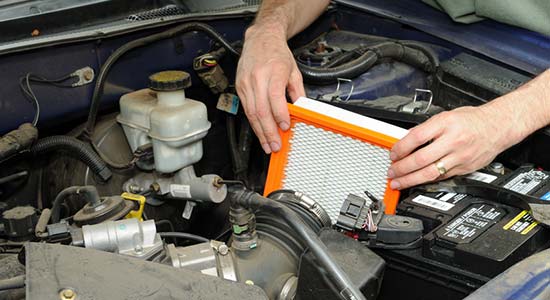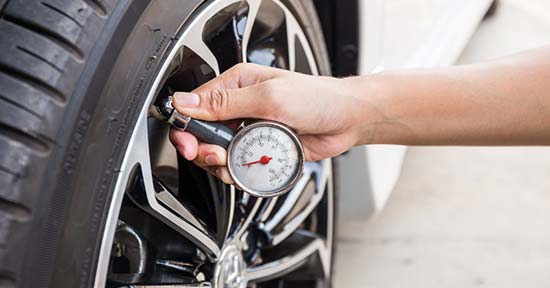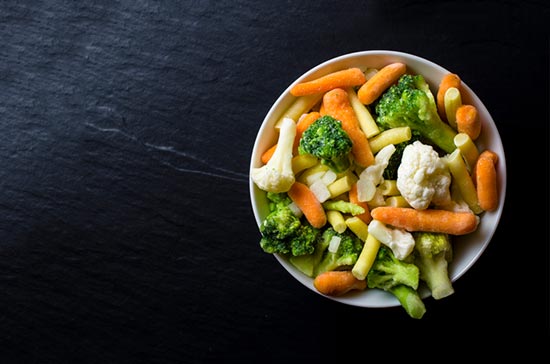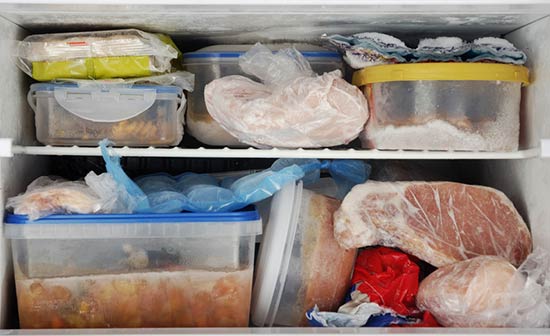Co-author: Olivia Fairhurst
Everyone likes saving money where possible, and the current is always a great time to kick your savings into gear.
If you need a bit of help getting your savings plan kick-started, here are a few easy ways to save money.
1.Check your bank accounts
Check to see whether you can change to savings bank accounts that pay higher interest rates for identical or lesser fees. Not only will some accounts offer higher rates, they may also offer an incentive to new customers. You can compare savings accounts here.
2.Be vigilant around electronics
If you’re feeling bored don’t turn on the television; pick up a book or something non-electronic. If you get into the habit of avoiding electronics you could save major dollars on your electricity bill and on a plus side, the environment will love you for it.
- Customer rewards

Sign up for as many free customer rewards programs as you possibly can – provided they ARE free! Think about stores where you commonly do your shopping and find out if they have a rewards program; you can receive discounts, cashback benefits, or other rewards.
- Don’t make big purchases instantly
Implement the 30-day rule, and wait for 30 days before making any unnecessary big purchases. This will help you avoid impulse buys and, in turn, you will save money fast. And you may find a better value deal in the meantime.
5. Your house is a bar in itself.

Planning to catch up with friends? Going out can wreak havoc on your spending, so why not just invite them over? You’ll save money, and probably still have a great time.
6. Don’t be so quick to trash things.
If your shirt or jeans pop a button or tear/rip, see if they can be mended before making the decision to throw them out. You’ll save money and learn how to fix clothes if you haven’t already.
7. Children are easily entertained.

If you’ve got small children, you don’t need to spend big money for them to have a great time. Playing in your backyard with them, going for a walk, or going to the park; all of these are free ways to have fun with your kid.
8. Drink more water.
Drinking water is much cheaper than buying soft drink, juice, coffee, or alcohol – and it’s also better for you. That’s a win/win.
9. Install energy-efficient light bulbs.
Changing out your old light bulbs for LED bulbs can save you a fair amount of money over the course of the year. They’re more efficient, don’t heat up, and can last for decades.
10. Clean your car’s air filter.

If your air filter is dirty and clogged, cleaning it can improve your car’s performance and fuel efficiency by up to 10%, which will save you heaps of money on petrol.
11. Learn how to cope with stress without spending.
Buying things can be an easy way to relieve stress (believe us, we know), but it’s not good for your wallet or your mental state. Find a healthy and sustainable way to relieve stress and both your mind and your wallet will thank you.
Here are some free ways to relieve stress that could save you money:
- Exercise.
- Reducing caffeine intake.
- Writing down what you’re grateful for.
- Spending time with family and friends.
- Laughing (we advise a comedic show).
- Spending time with family and friends.
- Practicing mindfulness.
- Deep breathing.
- Learn to say no.
- Learn not to procrastinate.
- Listen to soothing music.
12. Cancel memberships you don’t use.
If you’ve got a gym membership, sports club membership, or something similar that you’re paying for but not using, cancel that ASAP. You’re just throwing money away. This doesn’t mean not exercising at all. Find a form of exercise you don’t dread at the end of the day and you actually enjoy. If you enjoy going for walks and it doesn’t cost then why not stick to a light form of exercise better suited to you.
13. Generic brands.

Next time you go to the supermarket, consider buying the cheaper generic-brand version of some of the things on your list. There’s generally little to no difference in quality, but a significant difference in price. Also think about switching supermarkets to save some dollars.
14. The 10-second rule.
At the supermarket or corner store, whenever you add an impulse or luxury item to your cart, stop for 10 seconds and think about why you’re buying it and whether you need it or not.
15. Bottle your own water.
There’s something satisfying about bottled water, but that doesn’t mean you have to buy a new bottle every day. With plastic fizzling out, buy a reusable bottle instead and then subsequently refill it from a tap or water cooler.
16. Eat more vegetables.
When it comes to meat versus veggies, the latter is both cheaper and more nutritionally valuable. We’re not saying go vegetarian, but eating less meat and more vegetables will help out your weekly budget. There are also great substitutes which can be even more flavourful with the right herbs and spices. Grilled tofu, chickpea curries, vegetarian pastas, the list goes on. Here are some vegetarian dishes that may tempt your taste buds.
17. Catch a bus or train.
If possible, try and take public transport as much as possible. It can work out much cheaper than driving and it’ll significantly reduce your carbon footprint.
18. Check your tyres.

Keeping your tyres pumped up can save you money on petrol. A NHTSA study found for every 1% decrease in tyre pressure, it reduced fuel efficiency by 0.3%. Also, if you’ve got lots of heavy stuff in your boot, get it outta there ASAP. The heavier your car the more petrol it needs to move, making it less fuel efficient.
19. Go to free events.
If you’re stuck looking for something to do on a sleepy weekend, look around for free events such as a farmers’ market or a free concert in a park. Many neighbourhoods will have similar events going on at least semi-regularly. Here is a live update of the free events in New Zealand which you can narrow down to Auckland, the South Island or wherever you may be.
20. Keep things in working order.
What’s more expensive: a $100 repair person or a $500 washing machine? If you answered with the latter, congratulations, you’re correct. Keeping appliances in order instead of writing them off as broken can save you serious bucks.
21. Choose energy-efficient appliances.
Another note about those appliances we mentioned earlier; when it does come to buying a new one, try and find the most energy efficient one you can. It’ll save you money on your electricity bill.
22. Wait for sales.

If you desperately want new clothes or something that could be expensive, see if you can wait for sales before buying it. Have a good look through your wardrobe in the meantime and experiment with new outfits. You’ll be surprised at what you can put together and you may even revive your love for that shirt you haven’t worn in six months. Take a look on Pinterest or browse the top fashion bloggers of 2018 for some fresh inspiration . Browse charity stores too as you may find what you’re looking for, minus the huge cost.
See if you could find a better deal on a credit card
23. Delete credit card numbers from PayPal.
If you use an online payment service like PayPal, delete your stored credit card numbers from your account. That means when you want to buy something, you’ll have to get out your credit card and re-enter your details, and that may give you enough time to reconsider your purchase.
Compare credit cards with Canstar24. Go grocery shopping on a full stomach.
Studies show that hunger may cause you to buy extra or unnecessary items while doing your weekly grocery shop. Save money by eating beforehand.
25. Frozen veggies.

Contrary to what seems like popular belief, frozen vegetables aren’t less nutritious than their fresh counterparts, but they are usually cheaper. Frozen vege generally have less pesticide residue than fresh conventional produce and they usually contain more vitamins and minerals. This is due to the fact when vegetables are picked, they start to lose nutrients but frozen vegetables usually are frozen soon after being picked, meaning they tend to hold more nutrients. Frozen peas are a particularly good choice.
26. Keep spare change in mind.
We have a tendency to forget about the silver coins we’re left with after a lot of purchases. Round them all up at the end of the week and use them to pay for something small you were going to buy like a coffee.
27. Use your car efficiently.
If you need to shop at several places over the weekend, do it all in one sweep rather than individual trips or better yet, do it on the way back from work or elsewhere. You’ll save money and reduce your carbon footprint at the same time.
28. Clean off the top of your fridge.

The build-up of ice in your freezer can make your fridge less energy efficient, costing you more on your electricity bill.
Here are some ways to remove ice in your freezer:
- Scrape the ice with a plastic spatula or wooden spoon.
- Use rubbing alcohol and a hot cloth.
- Use a heated metal spatula (but be careful, always use an oven mitt!).
- Defrosting the freezer altogether by unplugging it from the wall.
And here are some ways to prevent the build up of ice in your freezer:
- Don’t put hot food in your freezer (let it cool to room temperature first).
- Make sure the freezer door is shut when not in use.
- Don’t block the freezer’s air flow.
- Keep the thermostat in your freezer below -18 degrees Celsius.
- Position the freezer far away from a heat source such as an oven or heater.
29. Designate yourself.
Offer to be the designated driver more often on a night out. You’ll save money by not drinking, and help your friends stay safe.
30. Do the stuff on this list.
I’m serious! It’s one thing to read a list of savings tips – but if you really do want to save money, you actually need to follow the advice. So, get on it.
And of course, make sure that any money you save is earning a healthy rate of return. You can compare savings accounts here.
Want more finance tips?

Sign up for free to receive more news and guides, straight to your inbox.
By subscribing you agree to the Canstar Privacy Policy.




Share this article